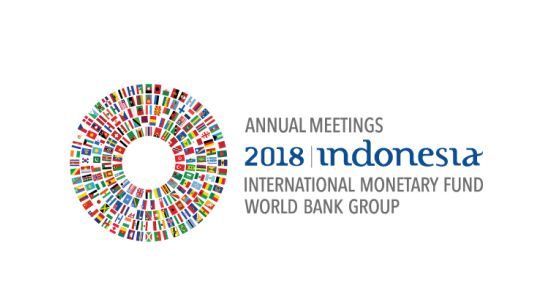Repression of Civil Society at the World Bank Annual Meetings

During the 2018 World Bank Group annual meetings in Bali last week, Indonesian authorities forcibly shut down civil society convenings that have, for decades, met alongside the Annual Meetings. According to reports from our partners, International Accountability Project and NGO Forum on ADB, the Indonesian police disrupted several events organized in parallel to the Bank’s Annual Meetings in efforts to silence, threaten, and intimidate local civil society members. As a result, at least three civil society side events were cancelled due to safety concerns and pressure on the organizers.
This crackdown on civil society is alarming. The World Bank Group must use its leverage to safeguard spaces for civil society organizations to convene alongside its own Annual Meetings, just as it must use its leverage to provide a safe space for civil society participation in the design and development processes of the projects it finances more broadly.
Despite World Bank President Jim Yong Kim’s 2013 pledge on Citizen Engagement to receive feedback from affected people in 100 percent of the Bank’s projects, major barriers remain in realizing robust community engagement. Local communities that are affected by World Bank projects often do not have access to basic and critical project information, which impedes their ability to meaningfully participate in consultations and provide valuable feedback on project design. When communities speak up and request project information, they often face grave risks of physical violence and imprisonment.
In Accountability Counsel’s case in central Nepal, community members who had requested basic project information were arrested for peacefully protesting the construction of a World Bank-funded high-voltage transmission line that passed over their land, schools, and community spaces. Construction of the transmission line had previously been halted due to community complaints about lack of information and consultation on their forced displacement. Their attempts to participate through consultation were met with an attempt to silence even their basic information requests.
As civic space shrinks around the world, development finance institutions must incentivize their public and private partners to encourage open civic spaces for civil society to engage around project information and consultation. Opening civic space should precede investment.
In the case of the Indonesian crackdown on civil society alongside the World Bank annual meetings last week, the Bank already has a framework that should be grappling with what happened and use it to prevent it from recurring, not just at meetings but wherever the World Bank acts. The framework needs organizational investment and prioritization.
Additionally, the Bank has a second set of tools – its accountability offices – that signal the importance of civil society as a partner in development, not an obstacle to it. These accountability offices are up for review right now. Our recent joint recommendations lay out changes that can enhance the ability of the Bank to be more accountable to the communities where it operates.
The World Bank has the potential to demonstrate leadership and champion inclusivity in development finance, but only if it ensures accountability and makes concrete its commitment to citizen-oriented, sustainable, and inclusive lending. We call on the Bank to proactively address repression faced by civil society in Indonesia, and to use its leverage to protect civic space and promote local participation in the communities where it operates.

